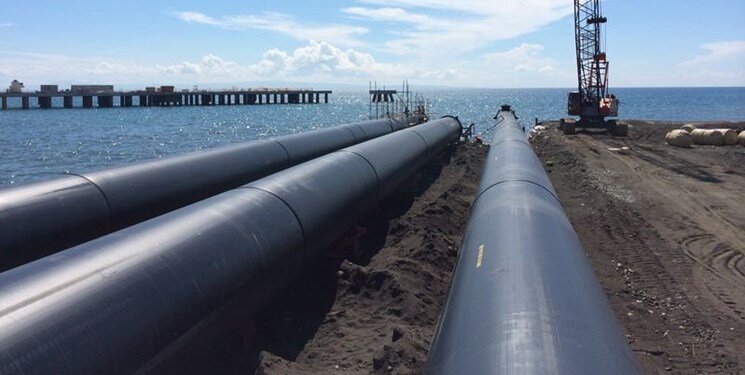Water transfer not a solution to drought

TEHRAN – The transfer and desalination of seawater is only a temporary solution to water scarcity and not a permanent solution to drought, Ahad Vazifeh, head of the national center for drought and crisis management said.
The transfer of seawater to central cities to address drought can be assessed from a variety of perspectives; Iran is currently facing water stress in various areas, such as drinking and agricultural water supply; the water shortage is so serious that everyone is warning of a sharp decline in groundwater resources, he explained.
Referring to the dire consequences of excessive water withdrawal, he lamented that the water transfer definitely is not a good alternative to supply water or meet future needs.
This project can supply water to a city or village at most, but it does not meet the water needs on a large scale, he added, IRNA reported on Friday.
According to Vazifeh, transferring water is so costly that even if it is used in the agricultural sector, it will make agricultural products more expensive, while the volume of water is limited and is not sufficient for the whole agricultural sector.
However, in case of water stress, water supply is a priority and there is no other choice but to deliver water to the people through seawater desalination projects. However, it is recommended to reduce the cost of water treatment using technology. Supplying energy from solar power plants can reduce air pollution and help make the project cheaper, in the long run, he explained.
Iran has very rich sources of solar energy to generate electricity, and if we can desalinate seawater using solar energy, we will be both entrepreneurial and cost-effective in the long run and prevent environmental pollution from fossil fuel incineration.
A project for transferring water from the Persian Gulf to the southern Fars province is in its pipe-laying phase, which was started in February 2019.
Water transfer projects underway
Iran started water desalination and transfer project in recent years aiming at alleviating and meeting the urgent need of central arid areas for water.
However, redistribution of water resources is inevitably involved in changes in the ecological environment and endangering nature.
Changes are divided into two negative and positive impacts, including water supply in water-deficient areas, facilitating the water cycle, improving meteorological conditions in the recipient basins, mitigating ecological water shortage, repairing the damaged ecological system, and preserving the endangered wild fauna and flora.
The negative impacts include salinization and acidification of the donor basins, damage to the ecological environment of the donor basins, and both sides of the conveying channel system, an increase of water consumption in the recipient basins, and spread of diseases, etc.
In Iran, two water transfer projects also have been proposed by the government to ensure water supplies for the provinces of Semnan and Sistan-Baluchestan suffering severe water shortages, which have been controversial over the past years.
One of the projects is the water transfer from the Caspian Sea to the central province of Semnan proposed in 2012, but not proceeded at the time due to concerns raised by the department of environment, while is now back on the table and at the planning stage.
The other looked to Oman seawater quenching the thirst of the southeastern province of Sistan-Baluchestan, Hormozgan, and Khorasan Razavi provinces, which have been allocated a budget of $400 million by the president in March 2016.
Water transfer projects beneficial or detrimental?
Experts believe that these projects entailing economic and environmental burden are no solution to droughts, and demanded the water transfer projects to be dismissed due to the irreparable damages to the environment namely deforestation, wildlife habitat destruction, biodiversity degradation, improper land change use, and contaminated seawater.
In a news piece published by Khabaronline, Mehdi Zare, a seismic expert, said that human intervention, speeding up climate change, is one of the major threats to today’s human life and even the future. One of the threats is that transferring water to dry areas increases the population burden in those areas while imposing unsustainable development where there is no suitable climate for such a concentration.
The disastrous consequences of such interventions have so far been appeared in the country, especially in the provinces of Tehran and Isfahan located in arid areas, which have been demolished being accommodated a population of three to five times the size of their carrying capacity in the last 50 years, he lamented.
This is while, some others are staunch supporters of water transfer projects as well as the Department of Environment (DOE) chief Issa Kalantari arguing that to provide the amount of water needed for drinking purposes and industries, there is no choice but to use seawater, the incredible and abundant resources, now and in the future.
FB/
